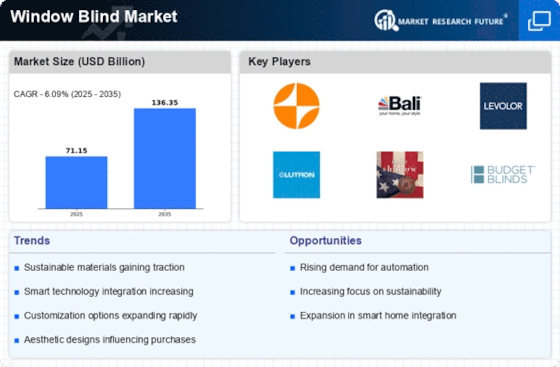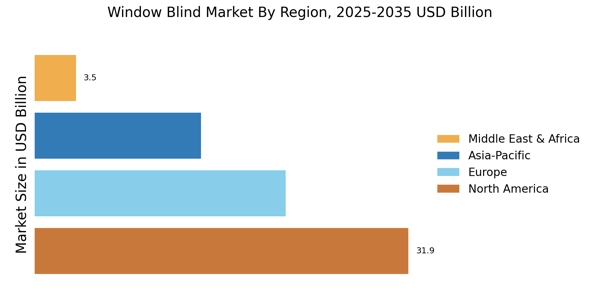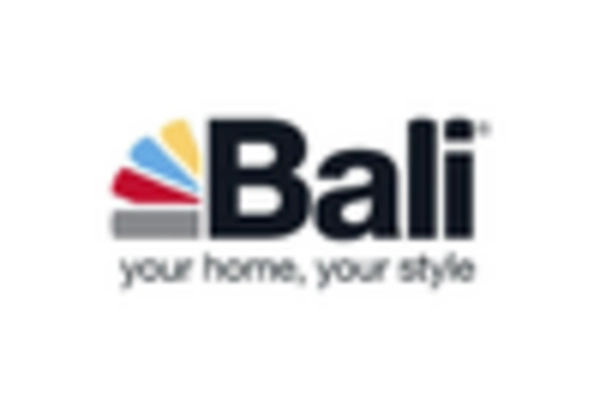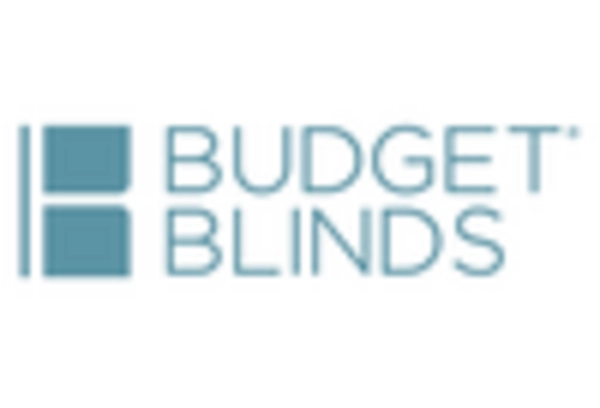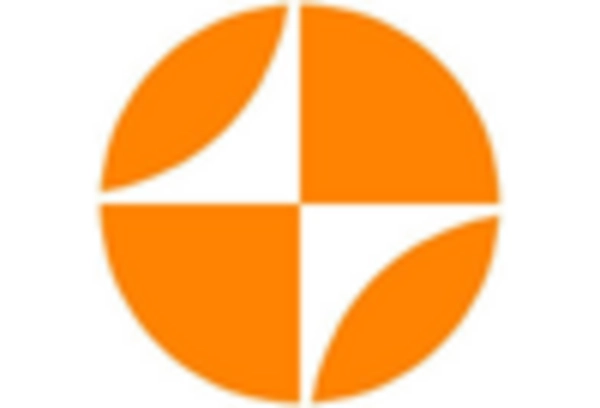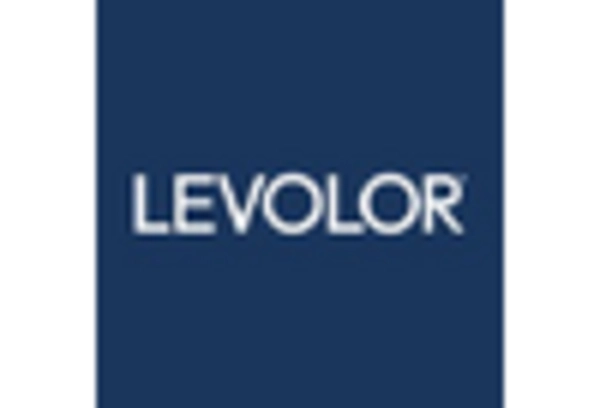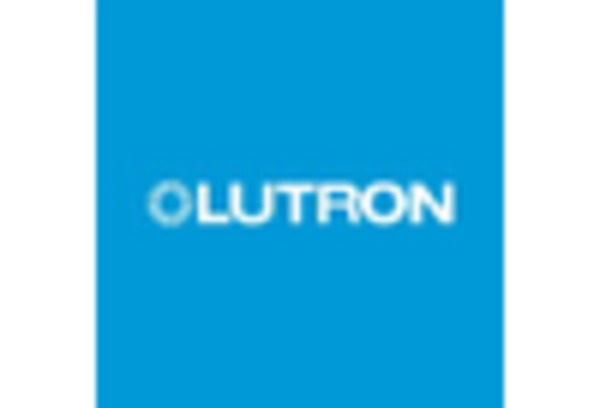Technological Advancements
The window blind Market is experiencing a notable transformation due to rapid technological advancements. Innovations such as motorized and smart blinds are gaining traction, driven by the increasing demand for automation in homes and offices. According to recent data, the market for smart window coverings is projected to grow at a compound annual growth rate of approximately 20% over the next five years. This surge is attributed to the integration of Internet of Things (IoT) technology, allowing users to control their window treatments remotely. As consumers become more tech-savvy, the appeal of automated solutions in the Window Blind Market continues to rise, potentially reshaping consumer preferences and driving sales.
Consumer Awareness and Education
Consumer awareness regarding the benefits of window treatments is steadily increasing, which is positively influencing the Window Blind Market. As individuals become more informed about the advantages of various window coverings, including energy efficiency, UV protection, and aesthetic enhancement, their purchasing decisions are likely to reflect this knowledge. Educational campaigns and marketing efforts by manufacturers are playing a crucial role in disseminating information about the features and benefits of window blinds. Data suggests that informed consumers are more inclined to invest in quality products, which may lead to an uptick in sales within the Window Blind Market. This growing awareness could potentially reshape market dynamics and consumer preferences.
Rising Demand for Energy Efficiency
Energy efficiency remains a pivotal driver in the Window Blind Market. With growing awareness of environmental issues and rising energy costs, consumers are increasingly seeking solutions that enhance energy conservation. Window blinds play a crucial role in regulating indoor temperatures, thereby reducing reliance on heating and cooling systems. Data indicates that energy-efficient window treatments can lower energy bills by up to 25%. This trend is further supported by government initiatives promoting energy-efficient home improvements, which may encourage consumers to invest in high-performance window blinds. Consequently, the focus on energy efficiency is likely to propel growth within the Window Blind Market.
Aesthetic Appeal and Interior Design Trends
The aesthetic appeal of window treatments significantly influences consumer choices in the Window Blind Market. As interior design trends evolve, there is a growing emphasis on stylish and functional window coverings that complement modern decor. The rise of minimalist and contemporary design styles has led to increased demand for sleek, unobtrusive window blinds. Market data suggests that the demand for decorative window treatments is expected to rise, with consumers willing to invest in high-quality products that enhance their living spaces. This trend indicates that aesthetic considerations are becoming increasingly important, potentially driving innovation and variety within the Window Blind Market.
Increased Urbanization and Housing Development
Urbanization is a critical factor impacting the Window Blind Market. As more individuals move to urban areas, the demand for residential and commercial properties is on the rise. This trend is accompanied by a growing need for window treatments that offer privacy, light control, and energy efficiency. Recent statistics show that urban housing developments are projected to increase by 15% over the next decade, creating a substantial market for window blinds. Additionally, new construction projects often incorporate modern design elements, further driving the demand for stylish and functional window coverings. Thus, urbanization is likely to serve as a catalyst for growth in the Window Blind Market.
.png)

